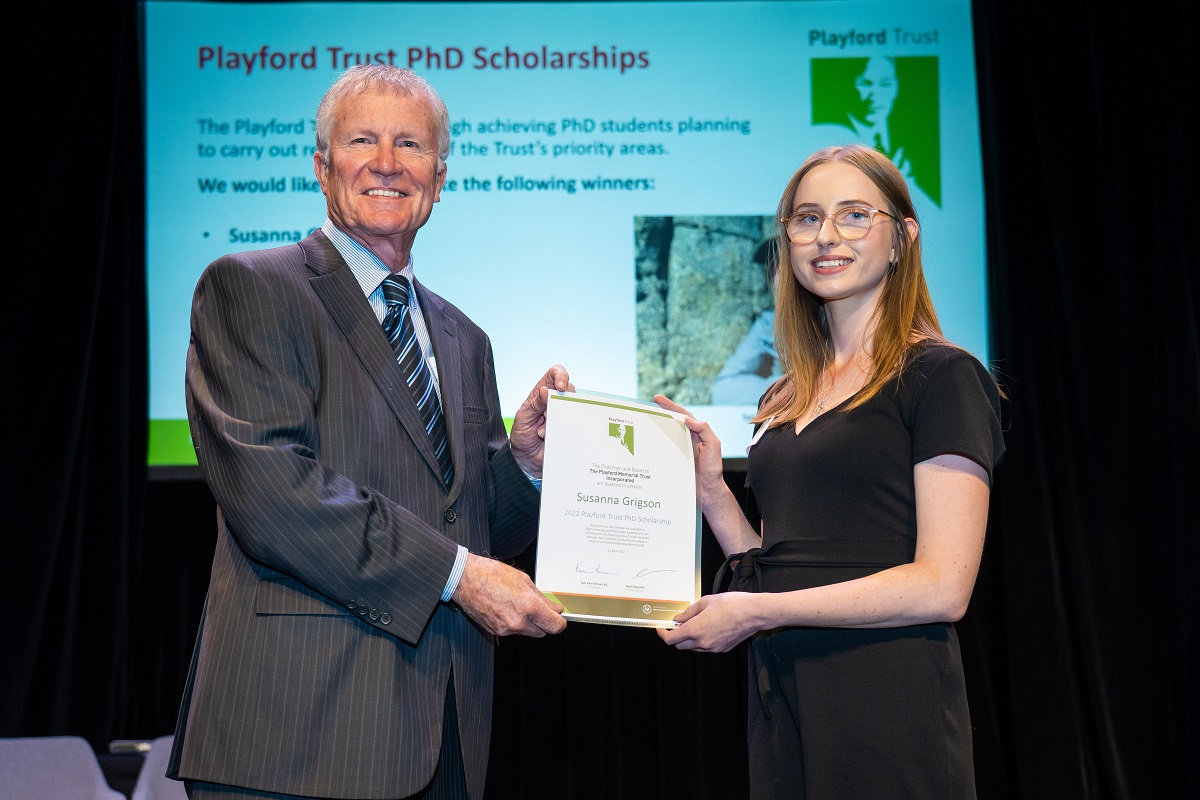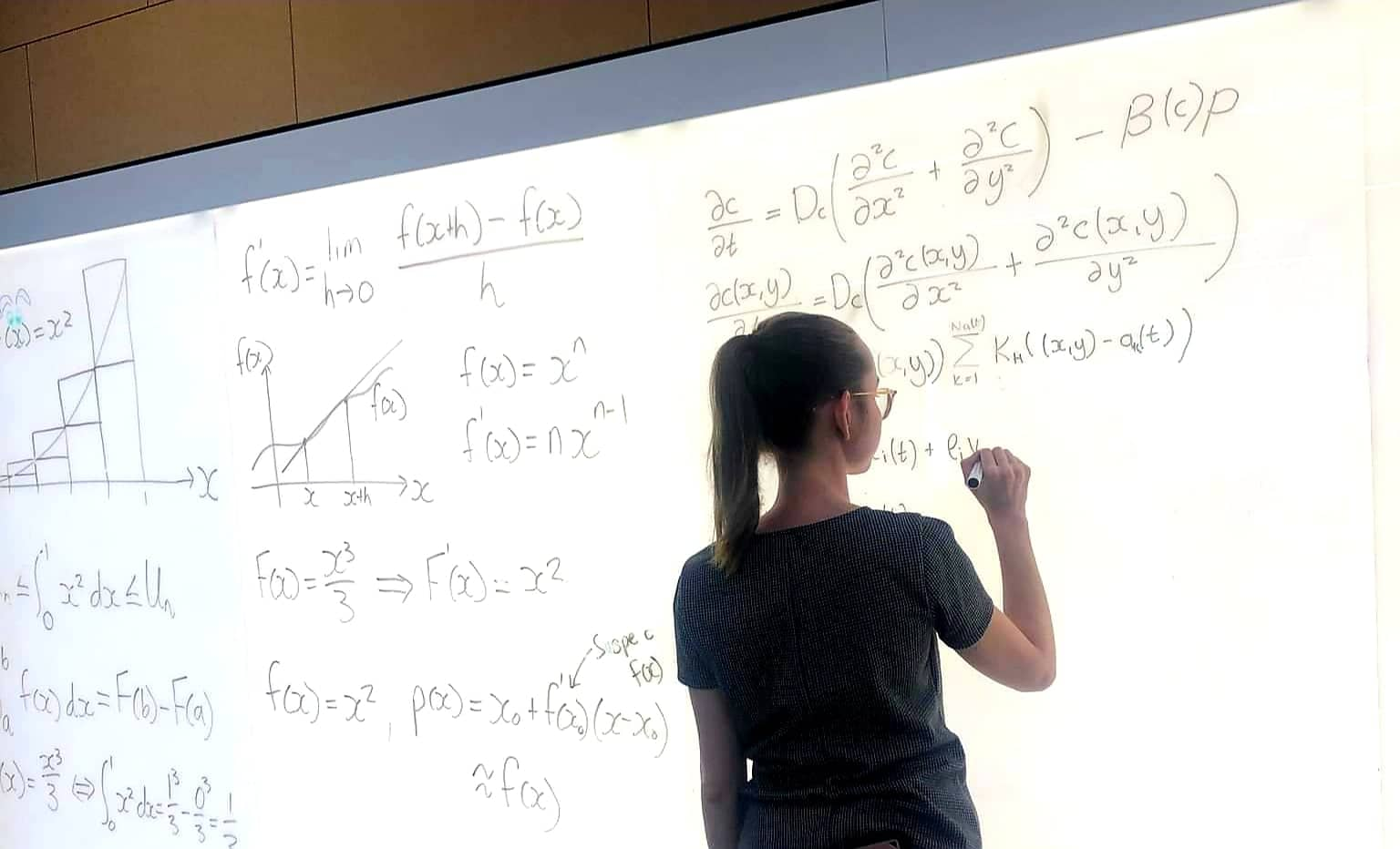
Having recently won a Playford Memorial Trust PhD Scholarship, Susie Grigson will be using numbers to predict how genes function. We caught up with her to discuss breaking down maths misconceptions and how 17 years old Susie never would’ve imagined her future.
What is your role and what does your work focus on?
I started my PhD in the Robert Edwards lab as part of the Flinders Accelerator for Microbiome Exploration (FAME) two months ago. My research is in the field of bioinformatics and combines mathematics, biology and computer science.
Specifically, I aim to use various modelling techniques, including machine learning, to investigate the function of microbial genes. This is particularly important as the amount of DNA sequencing data available is increasing rapidly, however, we still don’t understand the biological role of many viral and bacterial genes. My research will allow us to predict the function of these genes more easily!
Can you briefly describe the journey that took you to this point in your career?
I’ve always enjoyed science, but never really knew what I would end up doing. In 2017, I moved to Adelaide and started a Bachelor of Science at Flinders majoring in Molecular Biology and Biochemistry. I thought this sounded interesting but didn’t really know where it would take me.

During my first year, I picked maths topics as electives and quickly realised that there was a lot of potential to combine biology and maths. I also really enjoyed maths and didn’t want to stop, so decided to do a maths degree in addition to my studies in biology.
To try and get a feel for how I could combine biology and maths in my future career, I participated in several research projects and internships including a New Colombo Plan exchange to Malaysia and a Summer Vacation project with CSIRO. Last year I did Honours and completed a project investigating the migration of microbial communities using experiments, mathematical modelling, and bioinformatics. This was a difficult, but rewarding experience which inspired me to continue research and do my PhD.
For my PhD I decided to abandon the lab and focus on bioinformatics. This is an interesting field and allows me to use my mathematical skills to solve big problems.
What is something you love most about your work?
The thing I love most about my work is its interdisciplinary nature and connection to many different areas of biology. Just within my research group, there are people studying the microbes involved in Irritable Bowel Disease to the microbes that live on the skin of sharks. My work could be applied to these areas, as well as many others.
I like that maths can help us to improve our understanding of many different areas of science, especially biology. This often involves framing problems in creative ways and ‘borrowing’ ideas from different disciplines to solve novel problems.
What is something you would like people to know about your role?
I think there is often a misconception that you need to be some sort of mathematical genius to study maths or to code, but this really isn’t true. I wouldn’t say that maths comes naturally to me, and I certainly can’t add numbers together quickly in my head.
Maths is so much more than just ‘crunching numbers’ and is becoming increasingly important for a range of different areas. I think it’s important that we encourage more people, especially women, to consider these fields.
What is something you are most proud of?
I always feel proud when I have the opportunity to present my research. Though it can be scary, it’s amazing being able to reflect on a project which has gone through many stages with the support of all the amazing people who have helped me.
I also feel proud of how far I have come. The 17 year-old me wouldn’t believe that I’m doing my PhD!
What does a normal day look like for you?
I spend a large portion of my day at my desk in my lab’s office working on my PhD. Lately this has involved a lot of reading, writing, and coding. I also have a few teaching roles within the university and occasionally head out for few hours to demonstrate some biology practical classes or lead some maths tutorials.
Most days I’ll eat lunch in the hub with a few members of my lab which is a nice way to break up the day.
How do you like to relax or spend your spare time?
Recently I bought a digital piano and have been trying to learn a few new pieces. I used to play a lot of music when I was younger and it’s been really fun getting back into it again.
Otherwise, I like to get coffee with friends, listen to podcasts, read, or just relax at home with my cat.

